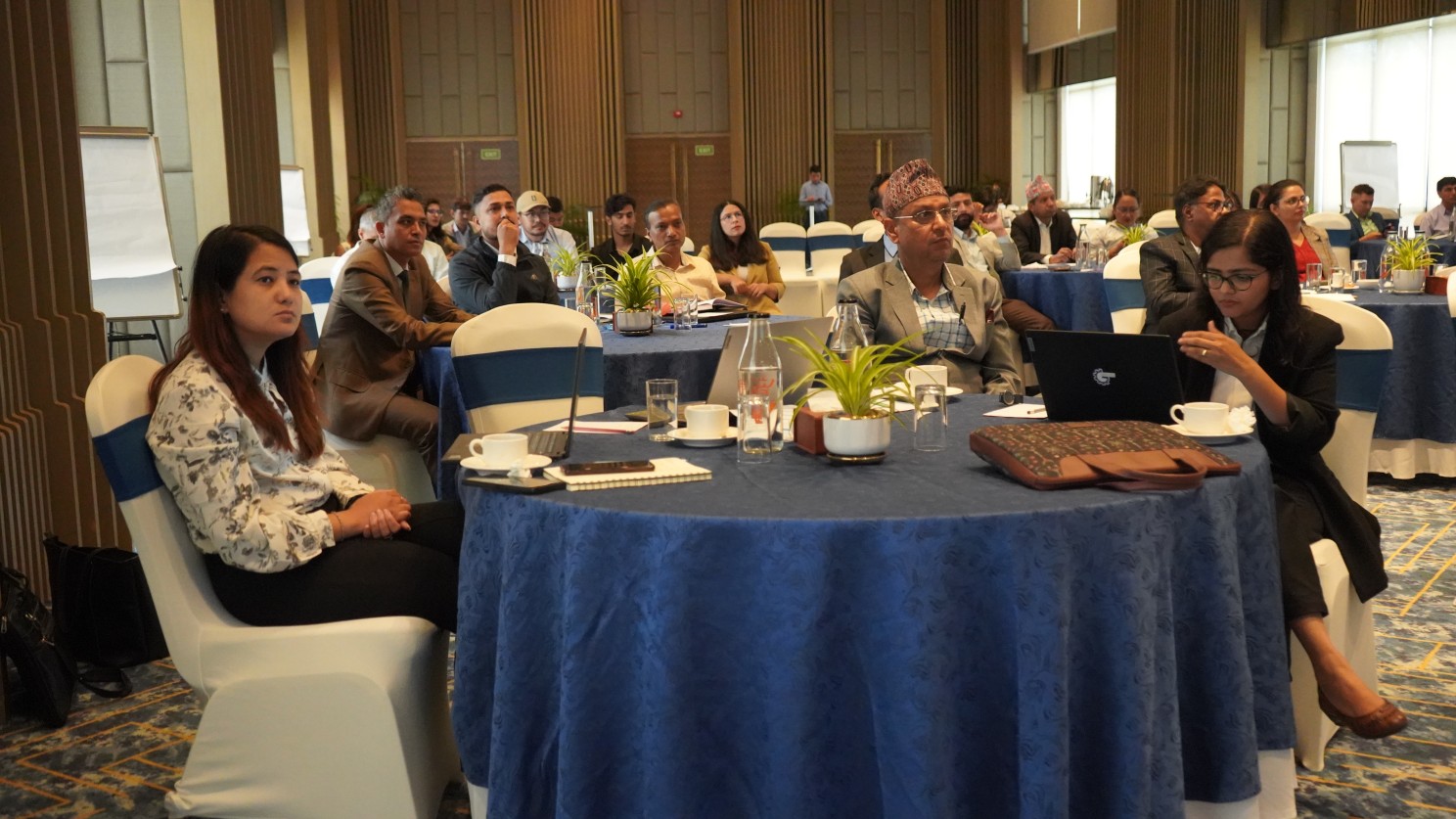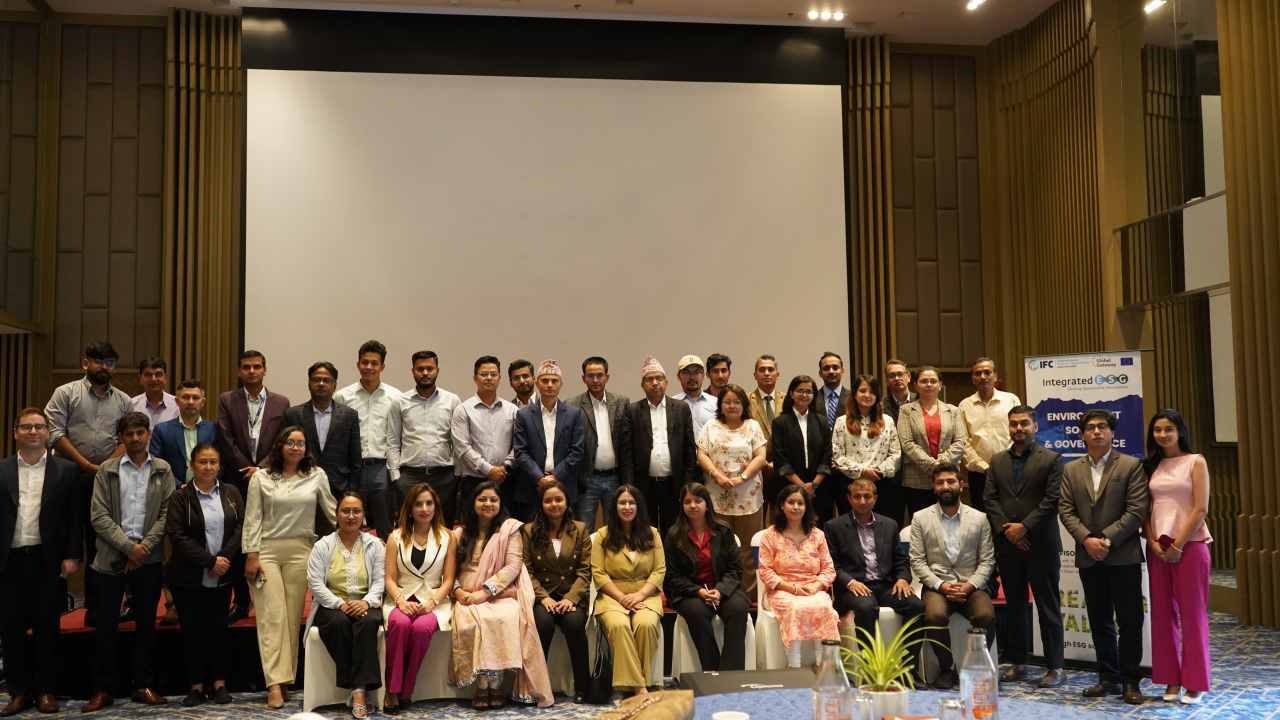IFC, FNCCI, NEPSE, and EU Collaborate to Advance Sustainability Standards in Nepal’s Private Sector

IFC, FNCCI, NEPSE, and EU Collaborate to Advance Sustainability Standards in Nepal’s Private Sector
June 26, 2025 – Kathmandu, Nepal
By Lopa Rahman, ESG Officer at IFC – International Finance Corporation
With support from the European Union’s Accelerating Climate-Smart and Inclusive Infrastructure in South Asia (ACSIIS) initiative, the International Finance Corporation (IFC), in collaboration with the Federation of Nepalese Chambers of Commerce and Industry (FNCCI) and the Nepal Stock Exchange (NEPSE), successfully engaged Nepal’s private sector in adopting globally recognized sustainability standards.
A three-day training program on IFRS Foundation International Financial Reporting Standards (IFRS) Sustainability Disclosure Standards and Environmental, Social, and Governance (ESG) standards and practices brought together more than 100 participants from private companies, banks, financial institutions, and the real sector. The program aimed to equip businesses with the tools to align their reporting practices with the International Sustainability Standards Board (ISSB) framework, which has emerged as the global baseline for sustainability disclosures.
“Transparency is crucial to instill trust among investors and stakeholders. What we are witnessing in Nepal is part of a broader global movement, including in the EU, where sustainability and accountability are becoming central to business practices,”
— Geertrui Louwagie, Deputy Head of Cooperation, Delegation of the European Union to Nepal
The training provided participants with a practical introduction to the ISSB Sustainability Standards, emphasizing how these standards can enhance corporate and financial institutions’ reporting to meet the expectations of investors and lenders on sustainability, incorporating reporting standards of IFRS S1 and S2. By integrating ESG principles into their core strategies, businesses can innovate, access new markets, attract investment, drive growth, and create additional jobs.
Good ESG practices help the private sector deliver stronger returns and better manage risks to businesses, communities, and the environment—especially in Nepal, a country highly susceptible to natural disasters. Additionally, they help businesses boost their reputation, reduce costs, and strengthen stakeholder relations. In Nepal, ESG-focused businesses can access new markets, attract investment, and support company growth, which in turn creates additional jobs.
As Nepal continues to integrate sustainability into its corporate reporting framework, initiatives like this training program will play a pivotal role in aligning the country’s private sector with global best practices. By empowering the private sector to adopt sustainability standards, these efforts contribute to job creation and long-term value generation. This alignment not only enhances transparency and accountability but also positions Nepal’s businesses to thrive in an increasingly sustainability-driven global economy.


